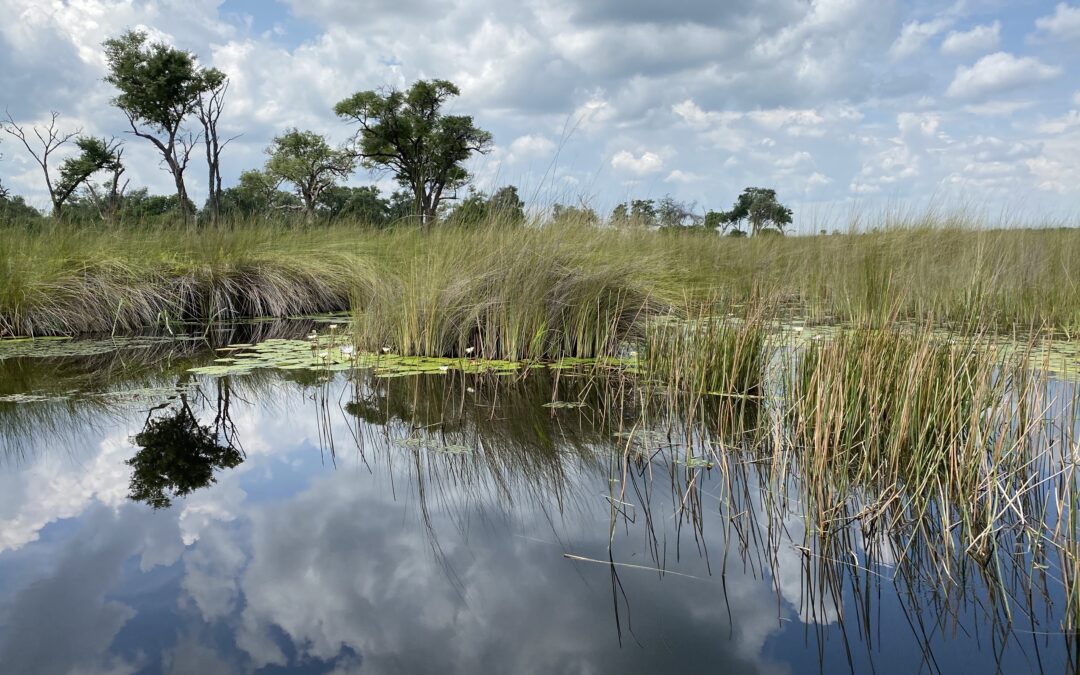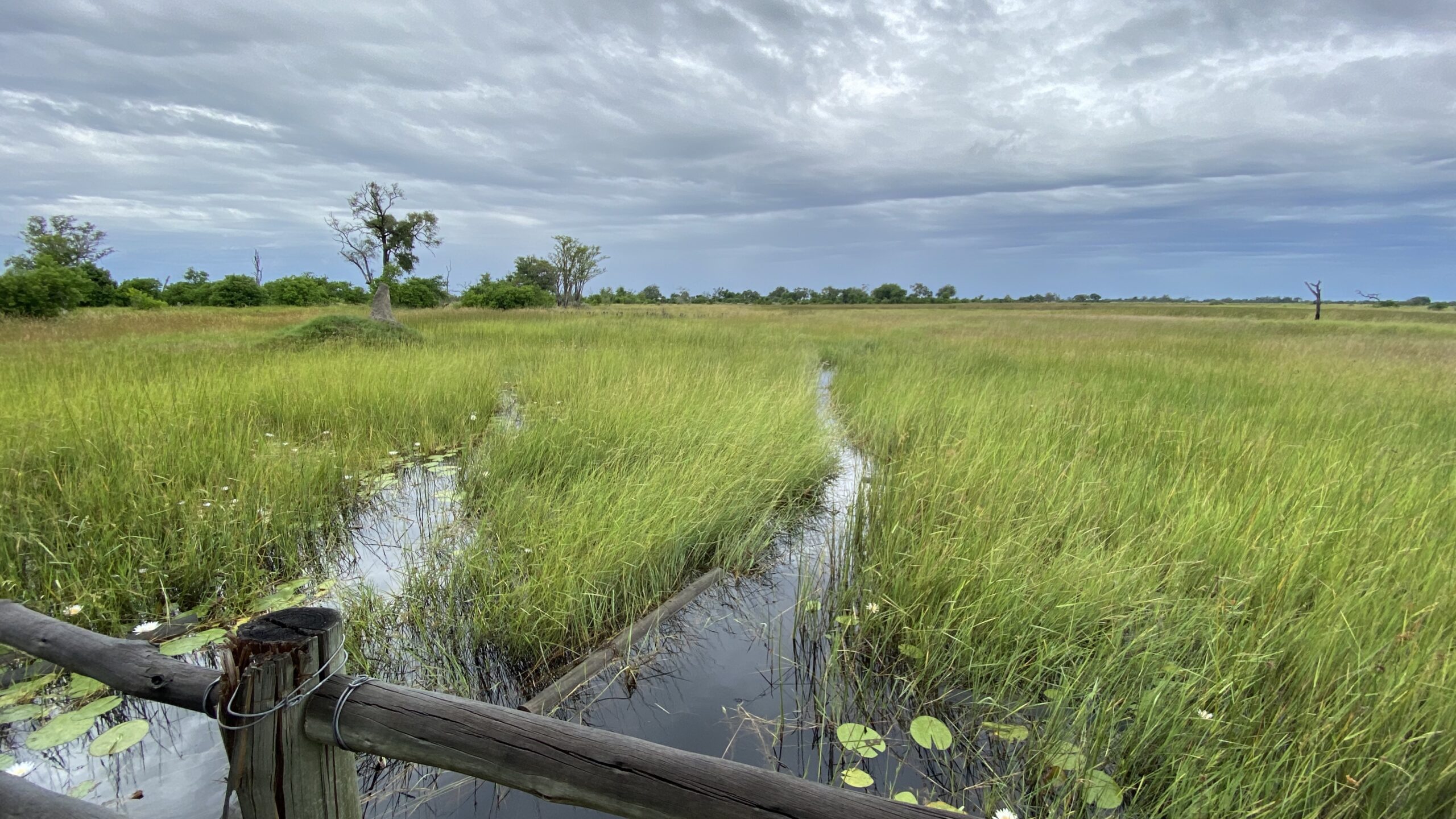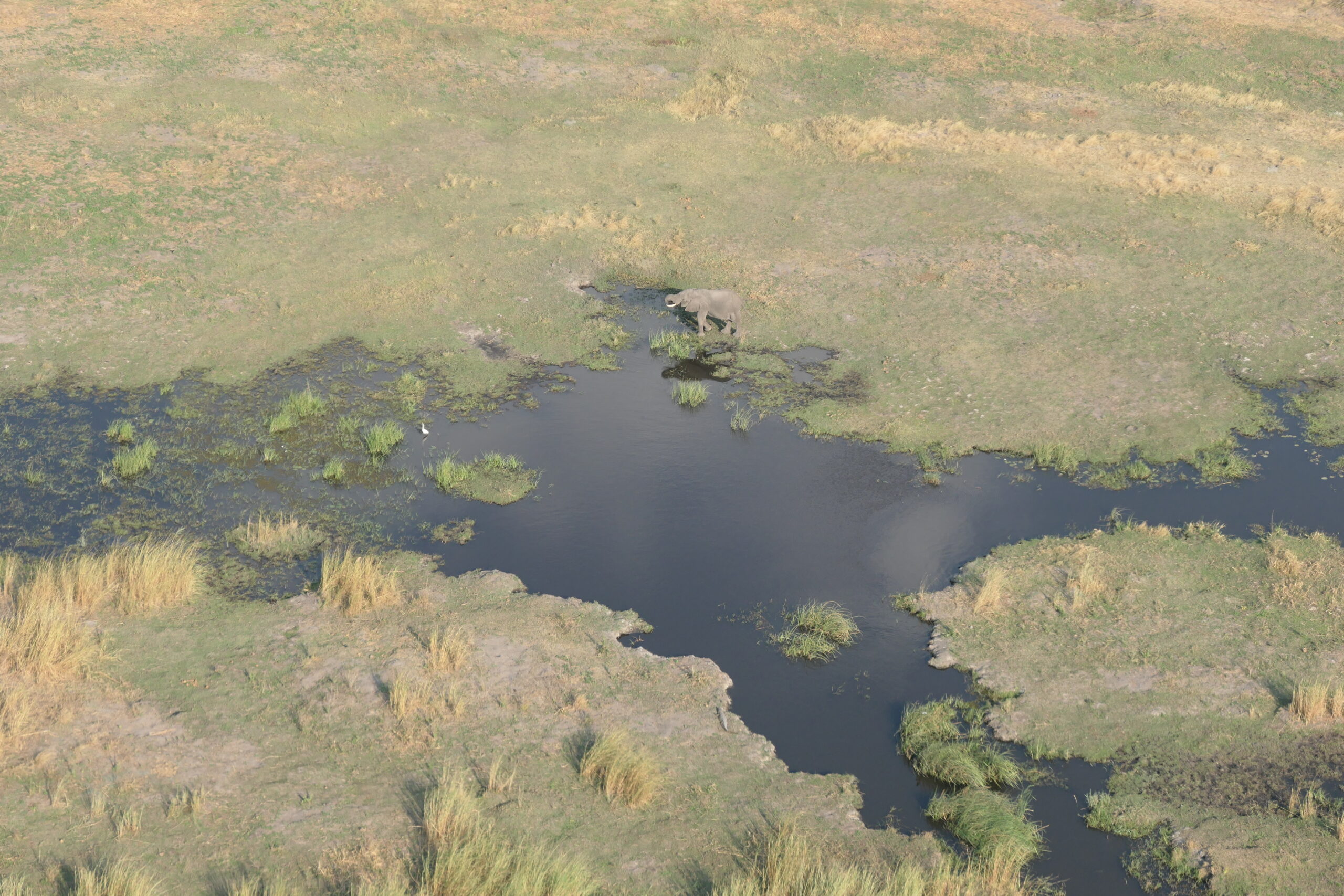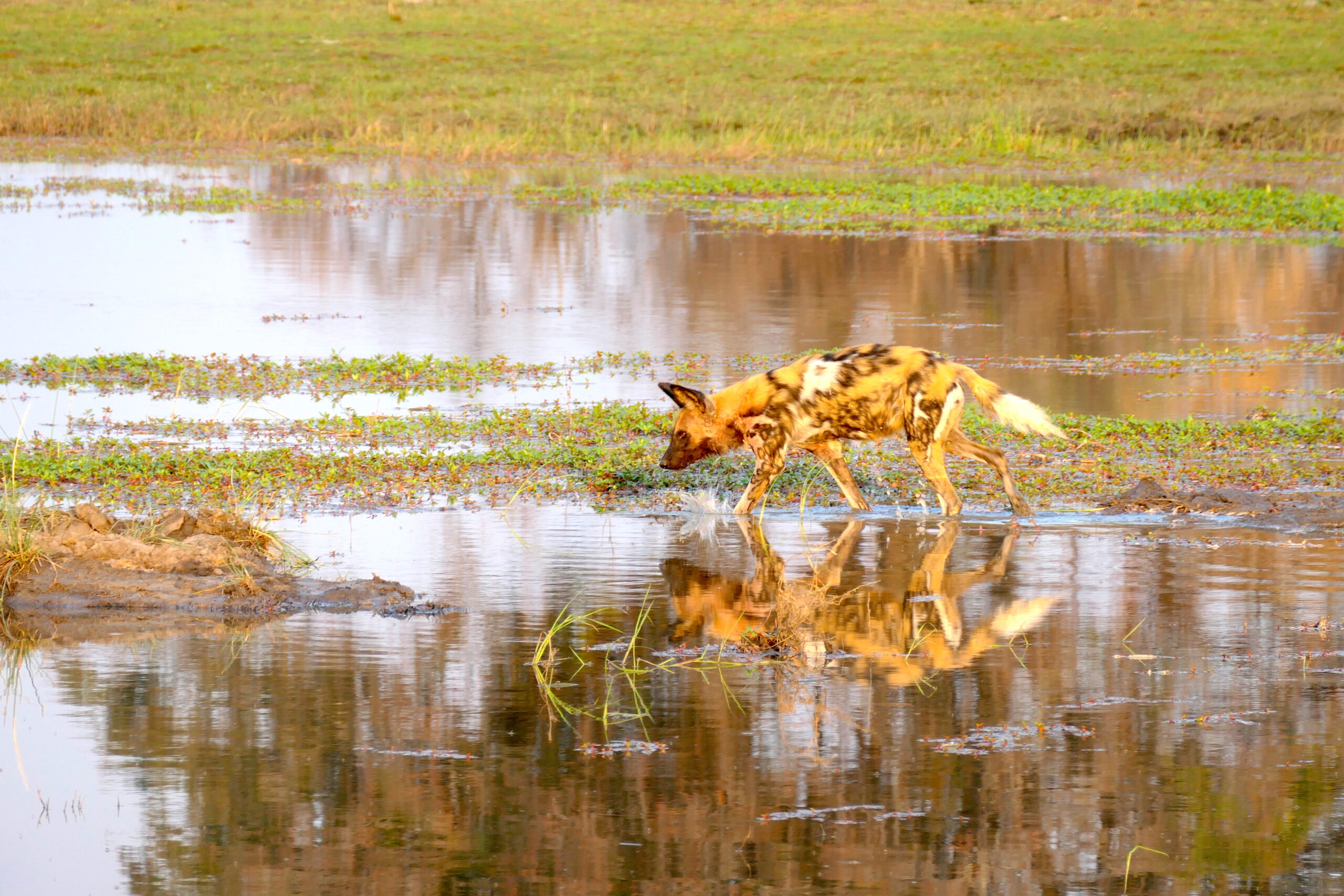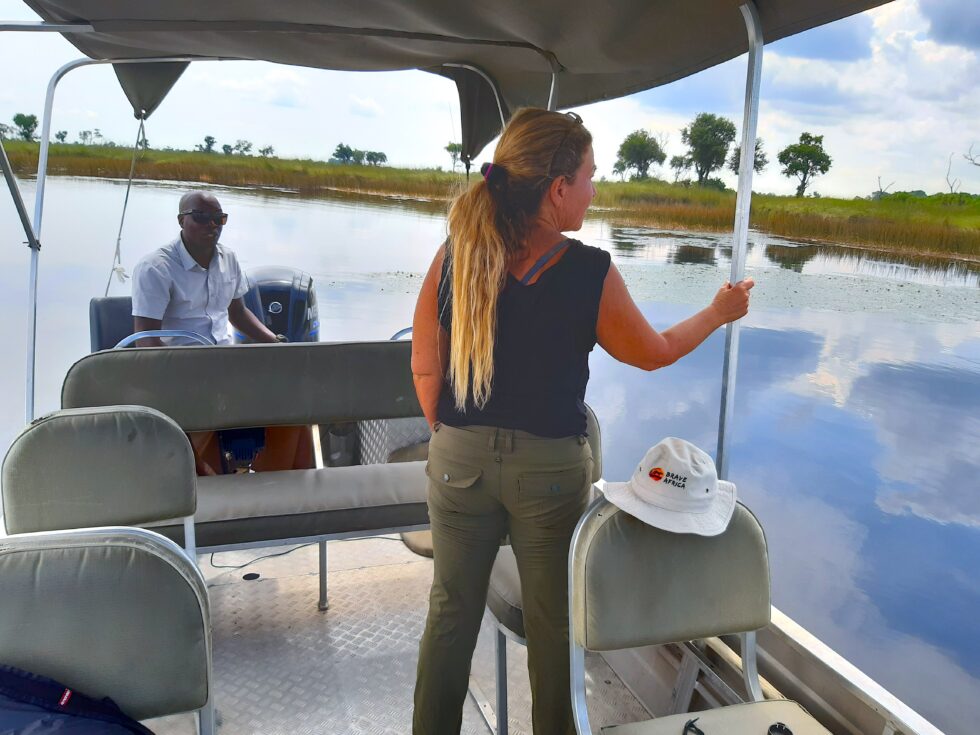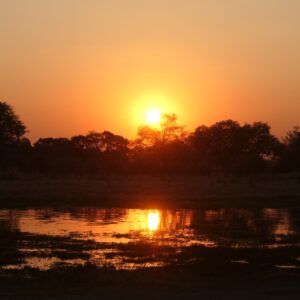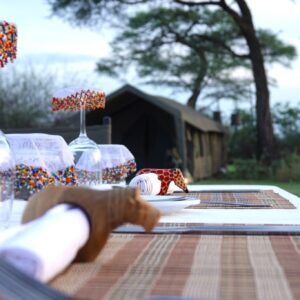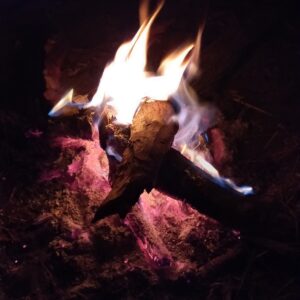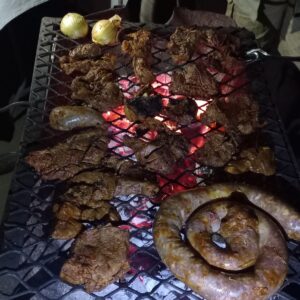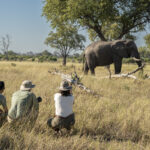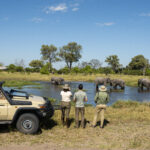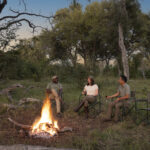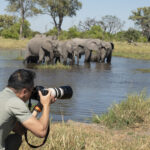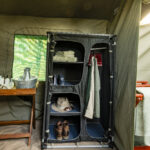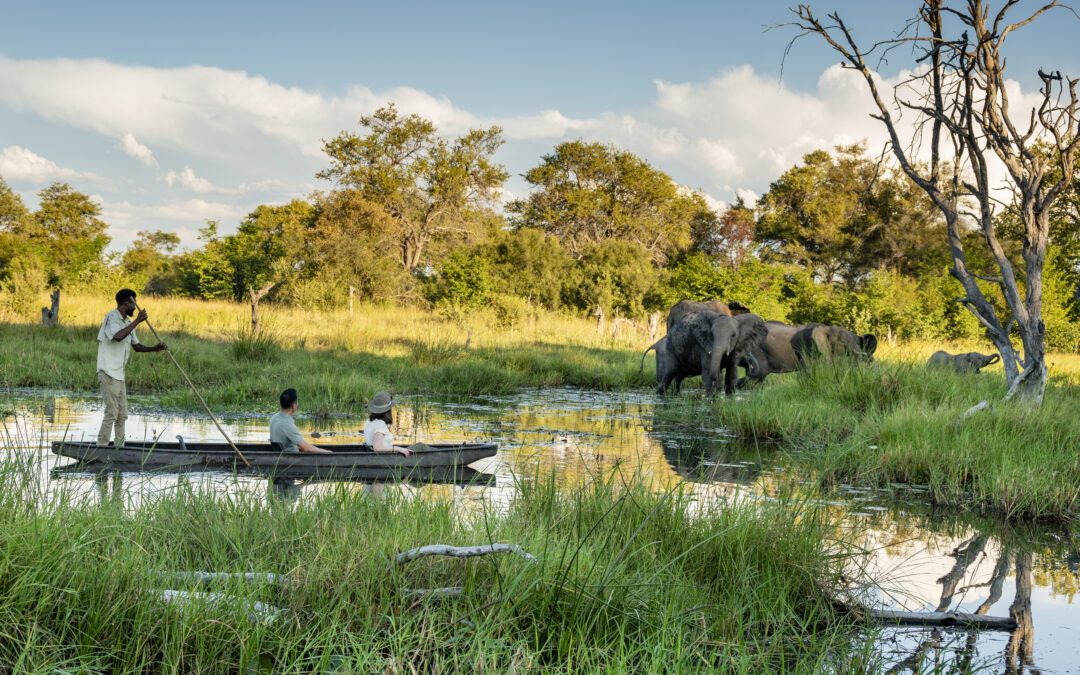
Jun 20, 2024 | Brave Africa Safari, Safari Tips
“I’m so worried! I’ve seen the videos online. Is a Botswana safari safe and what happens if things go wrong?” We know you are concerned about Botswana safari safety and that you want to have a magical trip with no worries. So, what do you need to know?
We have discussed “Is an African Safari Safe?” on our blog before, but we thought we would touch on the topic again and bring up a few more things. There are many ways we keep you safe on safari, and there are many ways to keep yourself safe. So, let’s talk about it!
And YES your kids are safe and welcome, too!
Safari Animal Safety
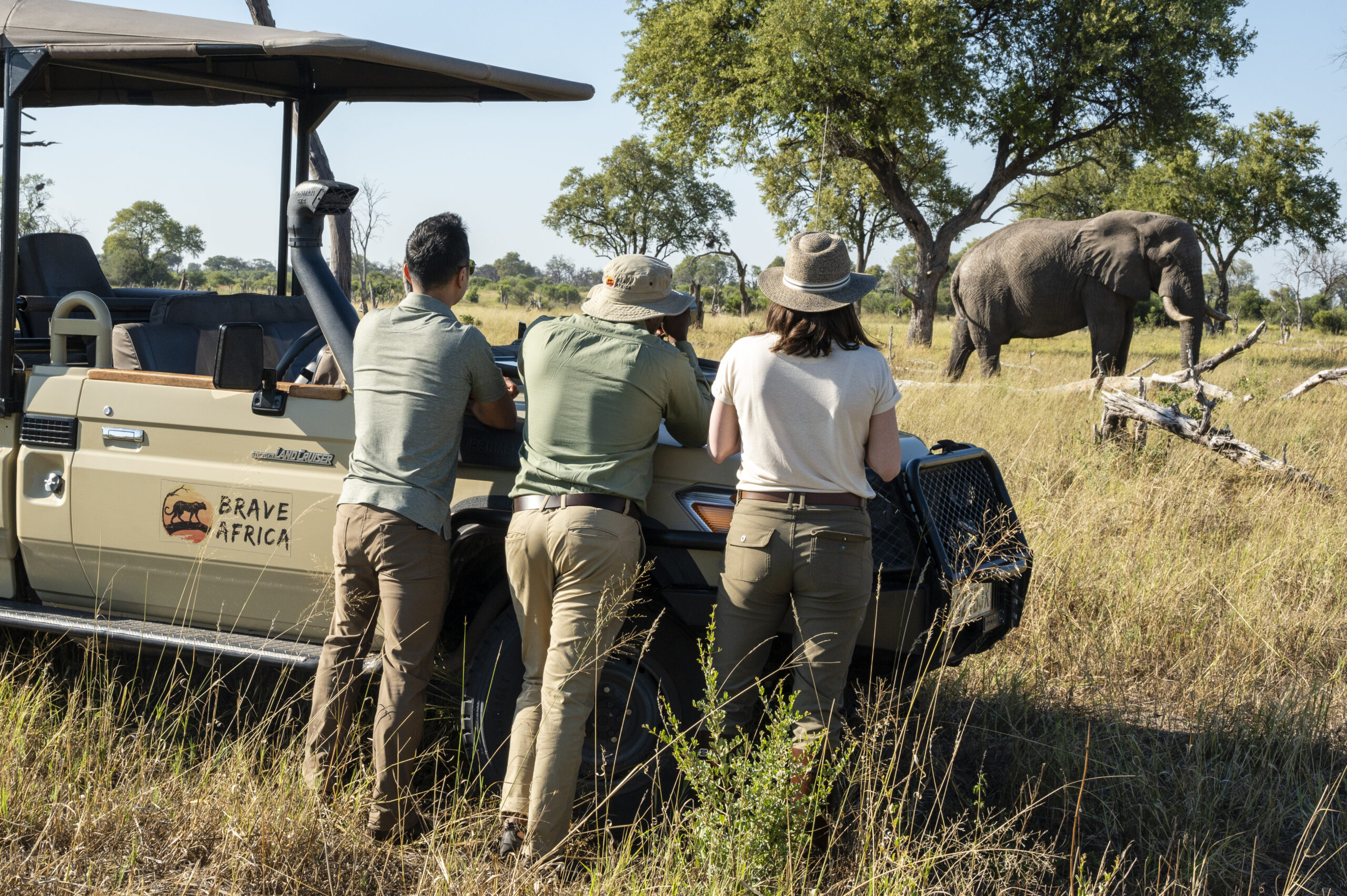 Are you going to be eaten by a lion? Is an elephant going to run over your vehicle? Is a leopard going to run through camp and enter your tent? You are in the wild, so everything is possible. Right?
Are you going to be eaten by a lion? Is an elephant going to run over your vehicle? Is a leopard going to run through camp and enter your tent? You are in the wild, so everything is possible. Right?
“I have seen safari videos online. It is dangerous! How can you protect safari guests from animals attacking? Are animal attacks common on safari?”
The short answer is, “Animals are not dangerous on safari if you follow the rules and act smartly.” Those videos exist because they get millions of views and, thus, a lot of money. They are viral videos because dangerous situations on safari are so rare, and as such, they are newsworthy.
If you have a reputable guide and stay at a reputable lodge, you should not worry about animals when it comes to Botswana safari safety. Here’s why.
Safari Guides and Safety
No guide would ever put a guest in danger! In fact, guides undergo years and years of training to ensure guest safety at every moment. And yes, this means guest safety even when interacting with animals.
- Animal Behavior: Reputable and experienced safari guides have spent years studying animal behavior to know how and when to interact with the many animals you will encounter on safari. Your guide will be able to tell you when an animal is stressed, when they need space, when it is safe to approach, how close to approach, and everything in between.
- Situational Awareness: Nature can always be unpredictable; that is why safari guides are also trained to never put themselves or their guests in a situation where there is no easy escape. It is one of the first rules of Botswana safari safety. This means that your guide will not drive your vehicle into an area where they could not easily get you to safety if the situation calls for it. Your safety is always their first priority.
- Safety Over Photography: We know that guests go on safari to get incredible photos and videos that will last a lifetime. But your guide will never prioritize your pictures over your health and safety or the health and safety of the animal. So, sometimes you might have to sacrifice the “perfect picture” for a safe experience.
Check out our Frequently Asked Questions (FAQs) for more insight!
Safari Camp Safety
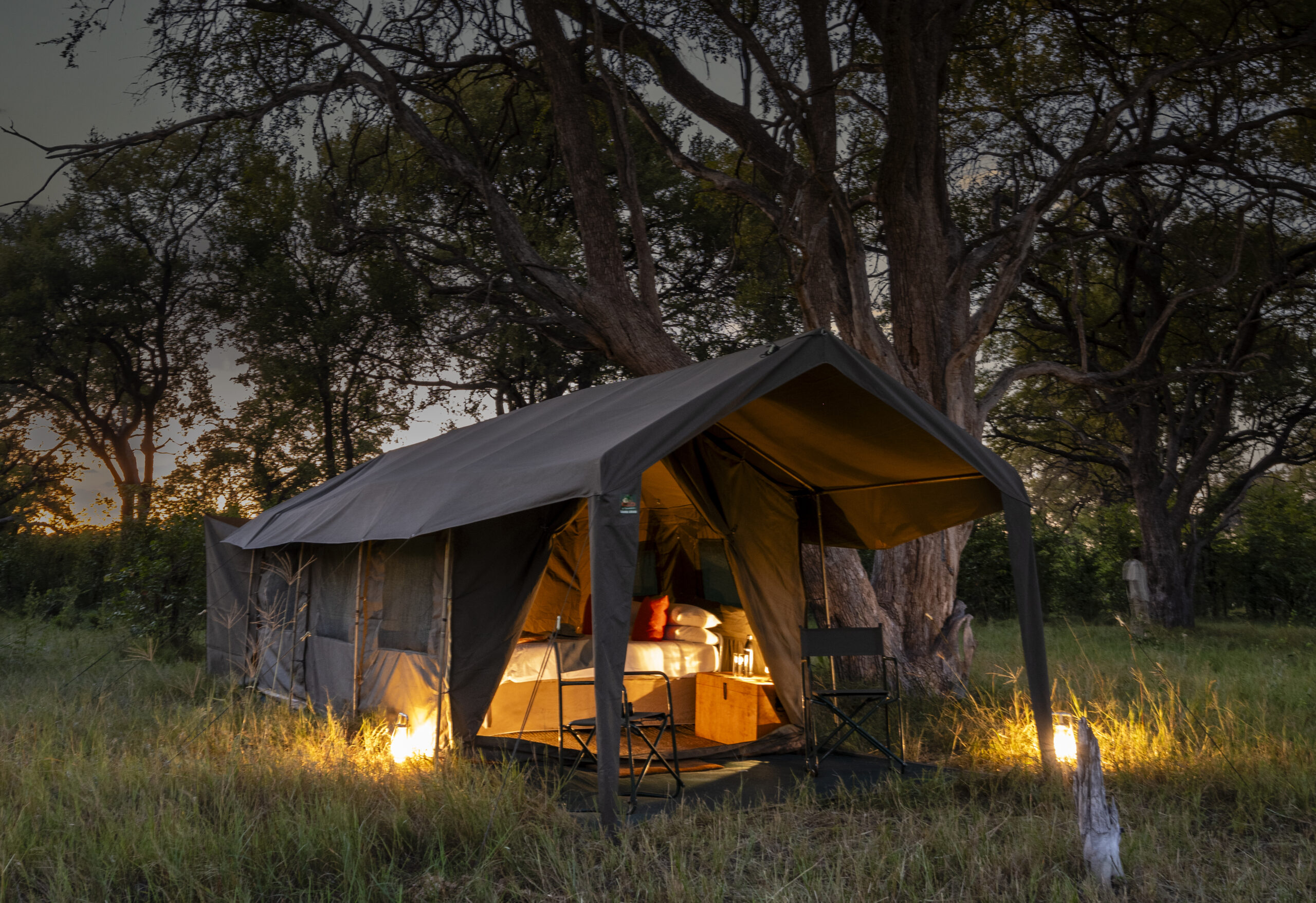 What about at camp? “I have seen your canvas tents. How is that safe? Animals could break into your tent or come through camp at any time!”
What about at camp? “I have seen your canvas tents. How is that safe? Animals could break into your tent or come through camp at any time!”
We love it when animals visit camp, and so do our guests. That is part of what makes a mobile safari camp so attractive: the chance to sleep and interact with animals where they live. And who doesn’t want to wake up to elephants drinking at the nearby river?
The key to remaining safe at your safari camp is listening to your guide, following the camp rules, and using common sense. Another key to Botswana safari safety is always remembering that we are visiting the animals’ home, so you must respect it!
Camp Rules
To ensure your safety at camp, there are a few critical rules you will need to follow.
- Never walk anywhere at night without a guide! When the sun sets at camp, you cannot walk anywhere you want. Night is the most dangerous time, and so you will be walked around camp and to and from your tent by someone on staff. This is for your safety and the safety of our staff.
- Never leave your tent at night! Once you enter your tent at night, stay inside. There is never an excuse to leave your tent at night. Yes, you will hear a lot of noises outside, but the animals will never bother your tent. You are safe inside. Do not go outside to look. Listen, enjoy the experience, and then ask your guide in the morning what happened. All sorts of animals come by camp at night, and they have night vision while you do not.
- Do not approach any animals without permission. If animals come into the camp, do not approach them unless you are with your safari guide and they give permission and show you how to approach safely and appropriately. In most cases, we do not want to interact with the wildlife directly for everyone’s safety and comfort.
Plan your safari experience with Brave Africa today!
Safari Vehicle Safety
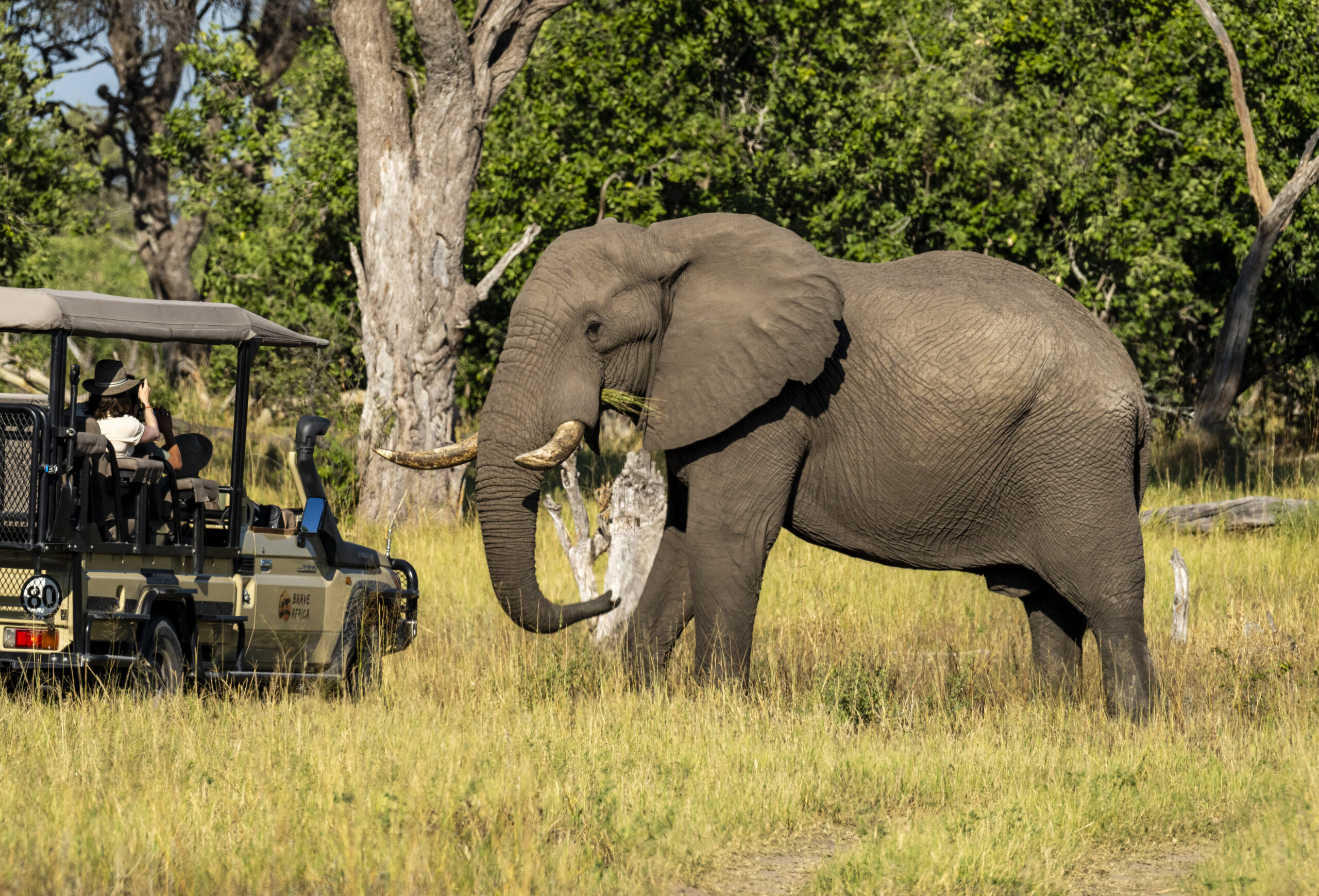
One concern we often encounter when it comes to Botswana safari safety are our open safari vehicles. Unlike in Kenya and Tanzania, most Botswana safari vehicles are open to the environment with no doors or windows, and it can seem unsafe if you have never been on a safari before.
“Can animals jump into the car and eat us on safari? What happens if an animal charges us? What about the vehicle getting stuck in the African bush?”
The first thing to know about your safari vehicle safety is that the vehicle has been specifically designed for an amazing safari experience. Our vehicles are entirely customized to ensure your safety and comfort on safari. We talk all about them in this blog. For now, let’s focus on safety.
Safari Car Safe Practices
There are many ways we practice Botswana safari safety during game drives in our open-air vehicles. Here is what you need to know.
- Listen to your guide. The first key to safari vehicle safety is to listen to your guide. They will tell you how to be safe near the animals inside the vehicle. This means:
- Never leave the car unless your guide gives the okay.
- Talk in low voices when near animals that may not react well to more animated chatter.
- Stay seated during animal sightings unless your guide gives you permission to move around.
- Keep your hands, arms, legs, feet, and heads inside the safari vehicle, especially around animals.
- Never reach out to touch the animals.
- Prepare for off-road driving. Safari guides are exceptional drivers. They have to be. Their roads are dirt tracks, marshlands, waterways, tall brush, narrow paths, and so much more. The good news is this means that you can go where the animals are and see things you could never see outside the bush. But don’t expect an always smooth ride because we cannot promise that.
- Trust in the community. When you go on safari with a reputable company and guide, you are never alone on safari. The entire community will come together to help if there is ever a need. For example, on a recent safari, another camp’s vehicle got stuck in deep water. Within an hour, 10-12 different safari vehicles and guides stopped to help rescue the vehicle and guests. Vehicle breakdowns, flat tires, and other mishaps can happen, but there is always help available. That’s why your guide has a radio connected to the entire community and camp—just in case.
Safari Safety: Injuries, Sickness, and More…
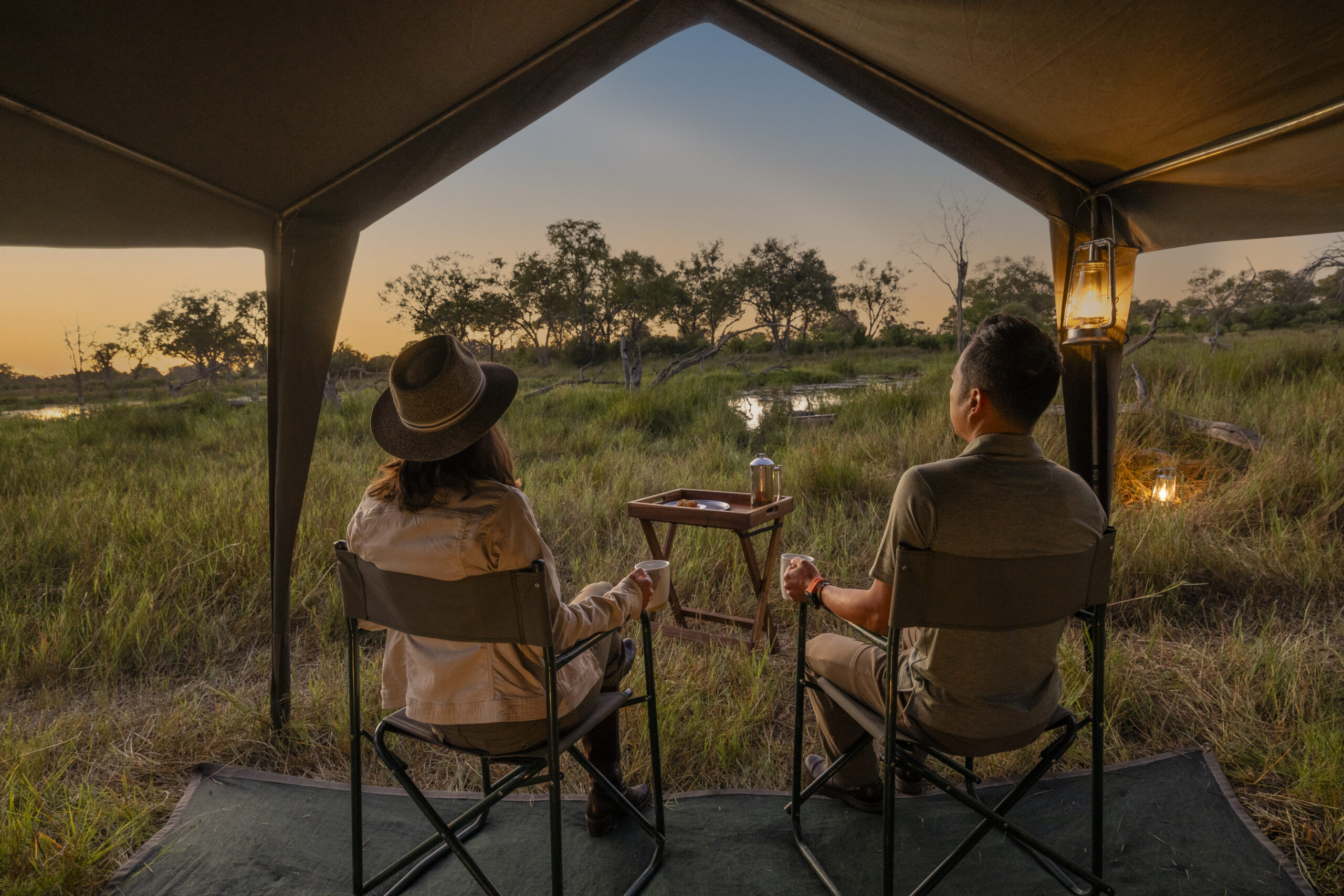 Lastly, you might be worried about being in the bush if something happens: you get sick, someone in your group gets injured, you have an allergic reaction, etc. If you need a doctor or a hospital, being away from civilization can seem terrifying. That’s why a key element of Botswana safari safety is our plan for first aid.
Lastly, you might be worried about being in the bush if something happens: you get sick, someone in your group gets injured, you have an allergic reaction, etc. If you need a doctor or a hospital, being away from civilization can seem terrifying. That’s why a key element of Botswana safari safety is our plan for first aid.
We do not leave your health or safety up to chance. We have various plans and contingencies in place to take care of you in case the worst should happen.
- Okavango Air Rescue: If a worst-case scenario should occur and you need emergency help, we would go with Okavango Air Rescue to get you to the hospital as quickly as possible. They have a medically equipped helicopter and emergency doctor who we can call to evacuate you from the bush immediately.
- First Aid Treatment: If you have a smaller injury that doesn’t require a doctor, we have multiple first aid kits around camp and in our vehicles that are available. These kits contain everything you would need for basic first aid.
- Non-Emergency Aid: If you become sick or injured in such a way that you are unable to finish your safari, but it is not an emergency needing immediate attention, we will work with the local bush flight companies to get you back to Maun or Kasane and a local doctor. Depending on your situation, we also might be able to drive you back into town.
We Take Your Botswana Safari Safety Seriously!
The key thing to note when it comes to your safety on safari is that your safety is our number one goal. It is even more important than getting the perfect picture or seeing all the wildlife. We know you will not have a good time if you feel unsafe or you get hurt.
If you have any questions or concerns about Botswana safari safety, please do not hesitate to reach out to us at info@braveafrica.com. We promise an African safari is worth it. You will not regret a moment!
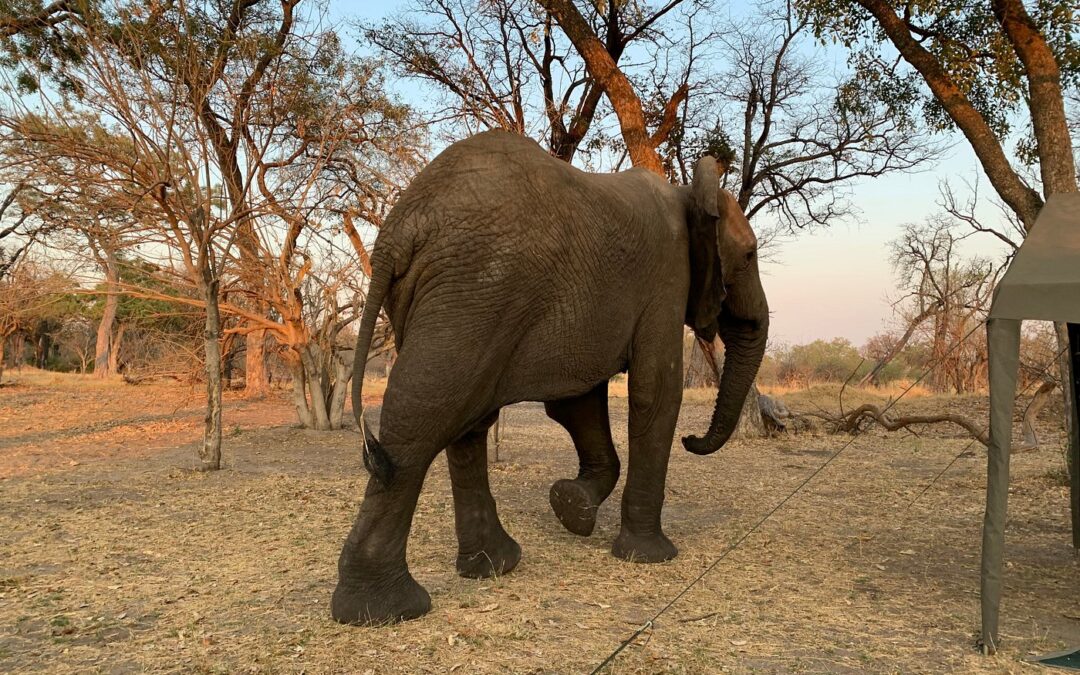
Dec 29, 2023 | Adventure Safari, Brave Africa Safari, Most Popular Blogs
As the year draws to a close, we wanted to take a moment to share some of the best Botswana safari holiday experiences in 2023! It was a truly incredible year, and the entire Brave Africa team would like to extend our heartfelt thanks to each one of you. This year has been wonderful, and it’s largely because of your support and enthusiasm for the adventures we offer in beautiful Botswana.
….
2023’s Best of Botswana Safari Holiday
Here are a few highlights from 2023 that we wanted to share with you! Let us know your favorites in the comments. Then, email us at info@braveafrica.com or
contact us on our website to plan your 2024 safari adventure!
….
Walking with Buffalo in Khwai
One of our favorite Botswana safari holiday memories happened in July, when a family of five FINALLY joined us on safari after postponing since 2020. They came for their daughter’s birthday, and on one very special day, they walked for three hours in the middle of a huge herd of buffalo. It was incredibly magical and an experience to remember forever!
…..
Elephants Visit Camp
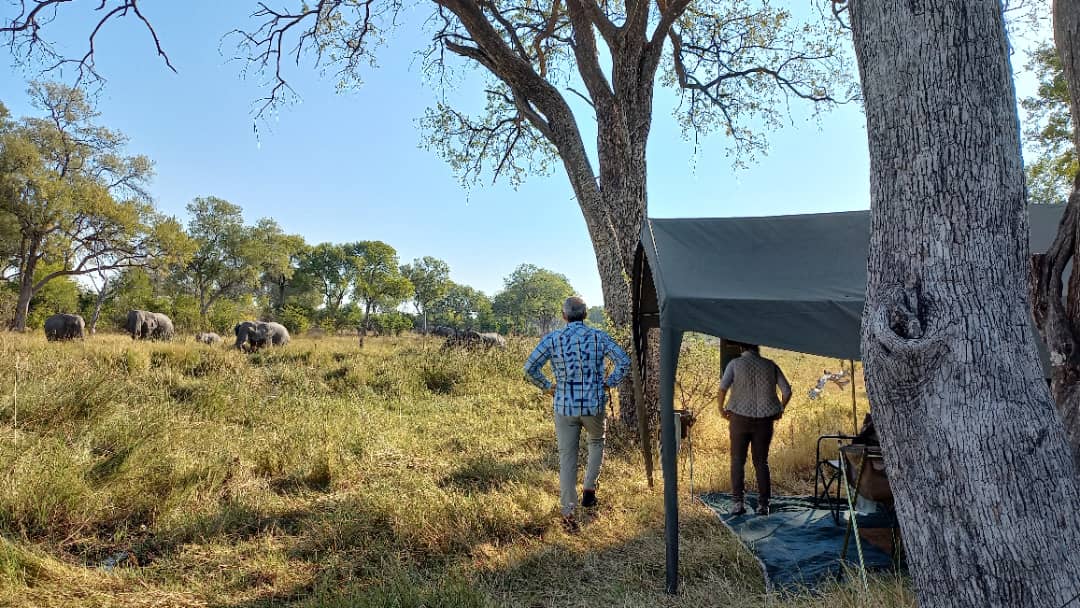
A shout-out to every single time elephants joined us at camp, so our guests could enjoy the herd just outside of their tent. It’s always a memorable Botswana safari holiday experience. And we always try to choose our campsites specifically to have the BEST chance of animals at camp.
….
Traditional Bread-Making in the Bush
We loved making fresh-baked bread in the bush with some of our younger guests. It’s a great activity if you want a break from going out on game drives or if you just want to experience something different and unique.
…..
Up Close Time with Lions
We always love getting to spend alone time with the wildlife. This year, in particular, we had a lot of close-up experiences with lions. In this instance, we enjoyed a lioness and her sister with a still-suckling cub! These types of encounters happen all the time while on safari, but they are always memorable.
….
Safari Activities for Children: Archery
Kids have the best time at Brave Africa! Not only do they get to enjoy our regular safari experiences, but we also have special kids-only programming for extra fun. On one of our favorite family trips this year, our two young guests participated in an archery competition with each other, and had an absolute blast! It’s just one of our fabulous safari activities for children.
…
Rare Cheetah Sighting!
Cheetahs are a rare sight! They usually travel alone and are very skittish. But on this day, a cheetah gave our Brave Africa guests an awesome sighting by hanging around and marking a tree right in front of them. It was a dream come true for our guests and our team. These sightings and so many more are what make a truly unforgettable Botswana safari holiday!
…..
Hyena Cackle Experience
Watching scavangers do what scavangers do! This hyena clan ( or cackle) enjoyed their meal right in front of our vehicle. And one adventurous hyena even decided to check us out to see if we had anything more to offer. We did not. But we always appreciate a close-up!
…..
Lion Pride Enjoying a Kill
It is a rare but special opportunity to watch a large pride of lions eating a fresh kill. But on this special Botswana safari holiday during the summer, our guests got to experience it. Our amazing guide, Wina, discovered a recently hunted buffalo with an entire pride of lions still feasting on their prey (cubs included). And our guests got to sit there for hours and just enjoy the spectacle.
….
Every Sundowner!
Sundowners are, without a doubt, one of our favorite times on safari. We take a break from looking for wildlife to just sit and soak in the beauty of Botswana. Our guide finds an incredibly beautiful spot in the bush. Then, we get out the drinks and snacks, and everyone enjoys the breathtaking Botswana sunset. There are few views better.
….
Lion Roar
There are hundreds more Botswana safari holiday experiences we could share with you, but we’ll end with one of our favorite sounds in the bush: the lion’s roar.
……
…..
Enjoy Our 2023 Best of Botswana Safari Holiday Reel
Each Botswana safari holiday in 2023 has been a unique journey, filled with
unforgettable experiences. We hope your time with us has left you with cherished memories and stories to tell for years to come. Your trust in us is not something we take for granted, and we look forward to welcoming many of you back in the future.
…
….
Thank you once again for choosing Brave Africa for your Botswana adventure. Here’s to many more journeys together!
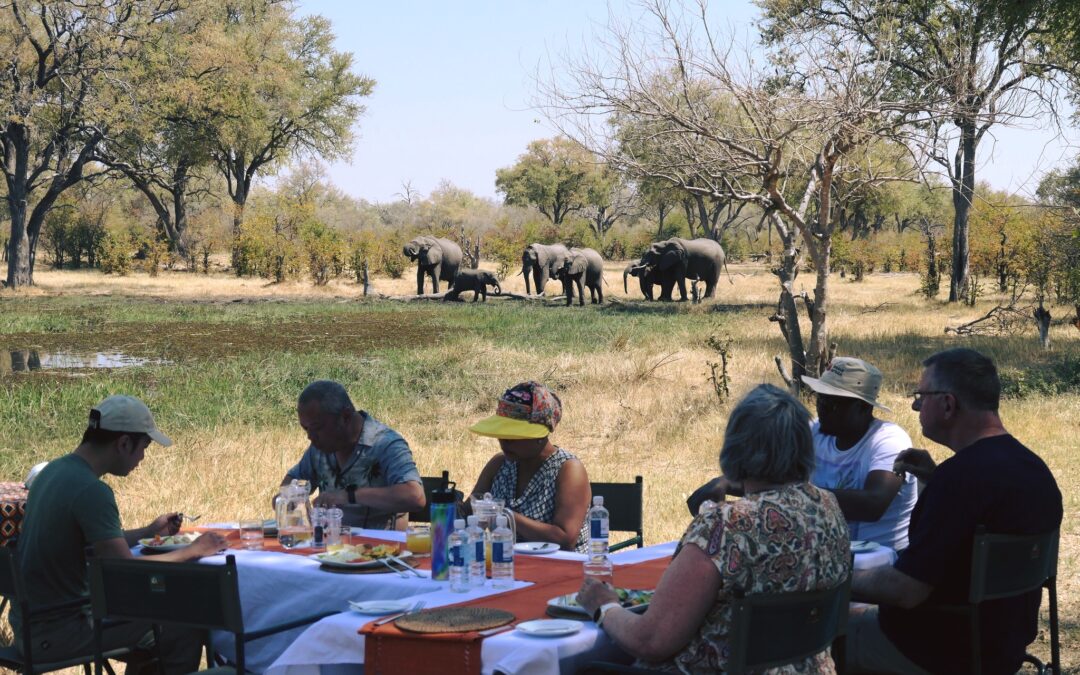
Nov 9, 2023 | Adventure Safari, Brave Africa Safari, Most Popular Blogs
Has someone told you, “You just have to go on an African wildlife safari!”? But you were not sure what they meant. Don’t worry! You are not alone.
While an African wildlife safari is a bucket list vacation for many people, it can also be intimidating and confusing. We get so many questions about going on a safari—what it is, how it works, where to go, etc.—that we wanted to create a blog series to help you out.
Over the next few blogs, we’re going to deep dive into everything you need to know about African wildlife safaris. For this first blog, we are starting with “What is an African Wildlife Safari?”
So, let’s go!
What is an African Wildlife Safari?
In the simplest terms, an African Wildlife Safari is a sightseeing trip to observe animals in the wild (bush). These are NOT hunting safaris. No animals are harmed during a wildlife safari. Instead, you go out in a 4×4 vehicle and search for animals in the vastness of the African wilderness—off-road and/or on designated paths.
The word “safari” is actually a Swahili word that means “journey or trip.” This is why, when we discuss going on safari, we don’t talk about an end goal. It’s about spending time exploring the bush and everything it has to offer. It is about the journey, and experiencing everything you can—and not the destination.
Wildlife Safari Guides
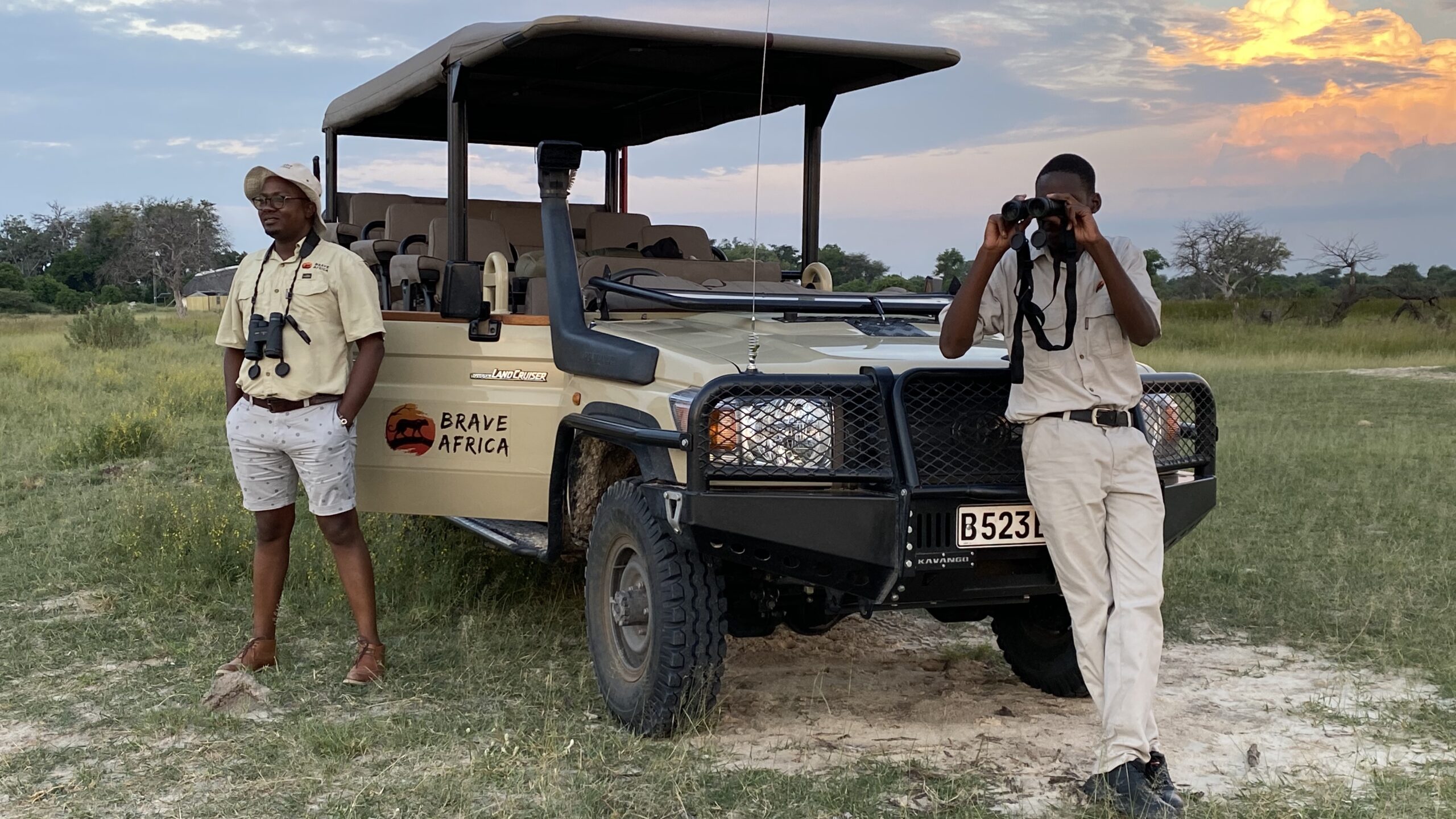
An African wildlife safari can be professionally guided or self-guided. Though we HIGHLY recommend a guide. A safari guide is a professionally trained individual who:
- has a passion for wildlife,
- has studied animal behavior and tracking,
- has a deep knowledge of the bush,
- and is ultimately responsible for your incredible (and safe) experience.
An unguided safari is more like driving through a national park in other areas of the world and hoping you see something, anything. You rent a 4×4 and drive on the paths and roads, crossing your fingers that wildlife will be nearby and easy to spot. There is no guide to help you track, and you will NOT be in an open-air vehicle for your own safety.
But a wildlife safari guide offers even more than the ability to find more animals. They are also living encyclopedias. We dare you to try and stump your guide with a question. If they have been guiding for a few years, there are few questions they have not answered and few facts about the animals, landscape, plants, and stars that they have not learned.
What Are the Different Types of Wildlife Safaris?
Now that you know what an African wildlife safari is, let’s talk about the different types of safari experiences you can expect. It may seem a lot more complicated than a trip to the city or theme park, but it doesn’t have to be.
There are three main types of safaris, each at a different price point and with a unique experience: Self-Drive Safaris, Mobile Camping Safaris, and Lodge Safaris.
Self-Drive Safaris
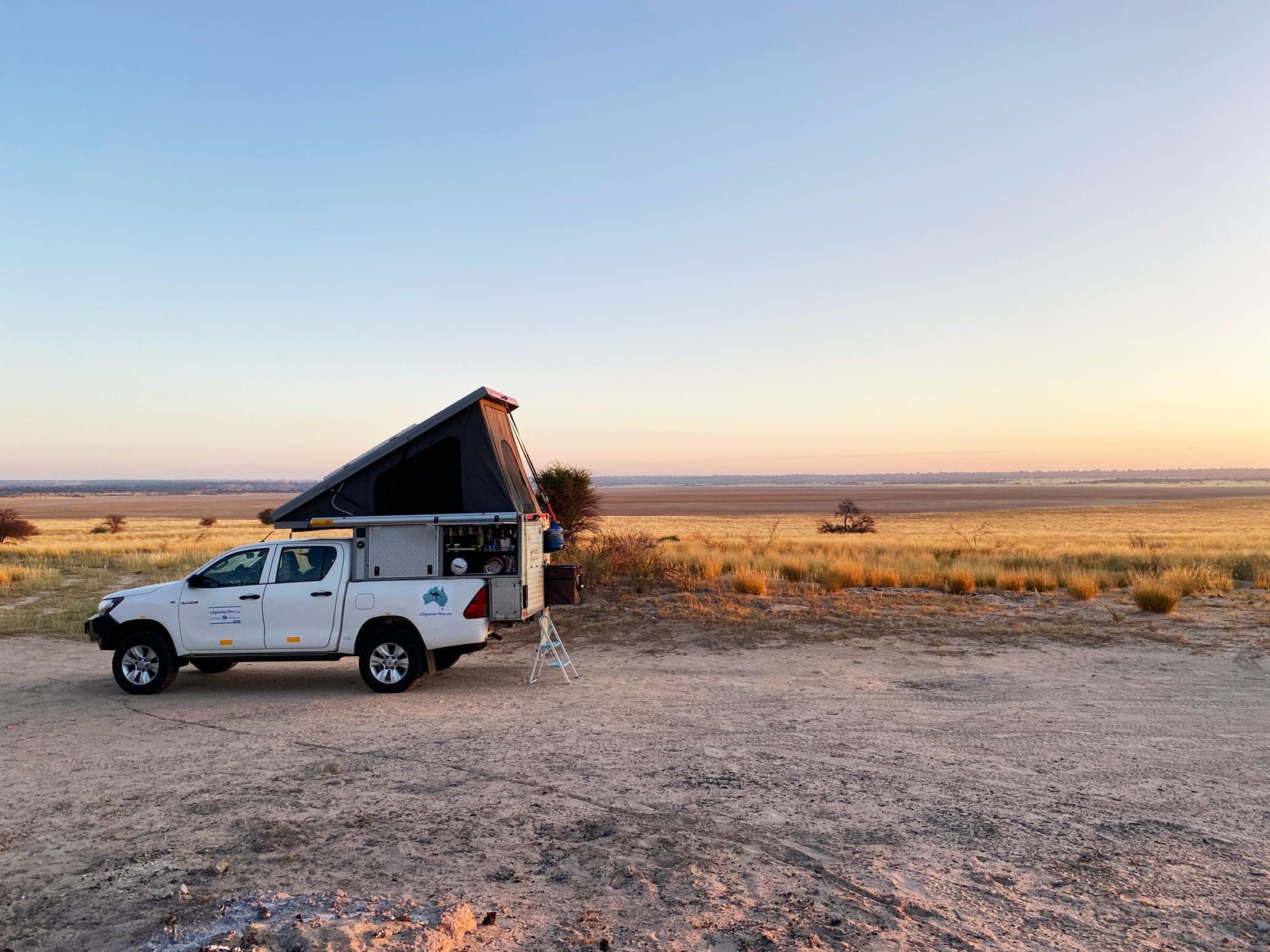
This is the most basic type of safari and the most affordable (kind of). You rent a car, buy tickets to a national park, and drive yourself and your family around the park searching for animals.
The simplest version of a self-drive safari is a day trip to a park such as Kruger National Park in South Africa. In this case, you would purchase a park ticket for one day and drive along the roads within the public portion of the park and see what animals you can see. You CANNOT drive off-road in this case, and you will be in the portion of Kruger that is open to all tourists (this means it is BUSY).
A more complicated type of self-drive safari is a multi-day camping safari. For this type of self-drive safari, you would rent a 4×4 vehicle and pay for a campsite within a national park such as the Khwai Community Concession. You would set up your campsite, and then every day of your trip, drive out in your vehicle along the paths to see what wildlife you can discover. You would need to be proficient at both camping and driving off-road.
The key thing to remember about self-drive safaris is that you are 100% on your own. You do not have a professional guide who knows the area or the animals. You have to be completely self-sufficient. Oftentimes, this results in vehicles getting stuck and needing to be rescued or poor animal sightings because you can’t track them.
Mobile Camping Safaris
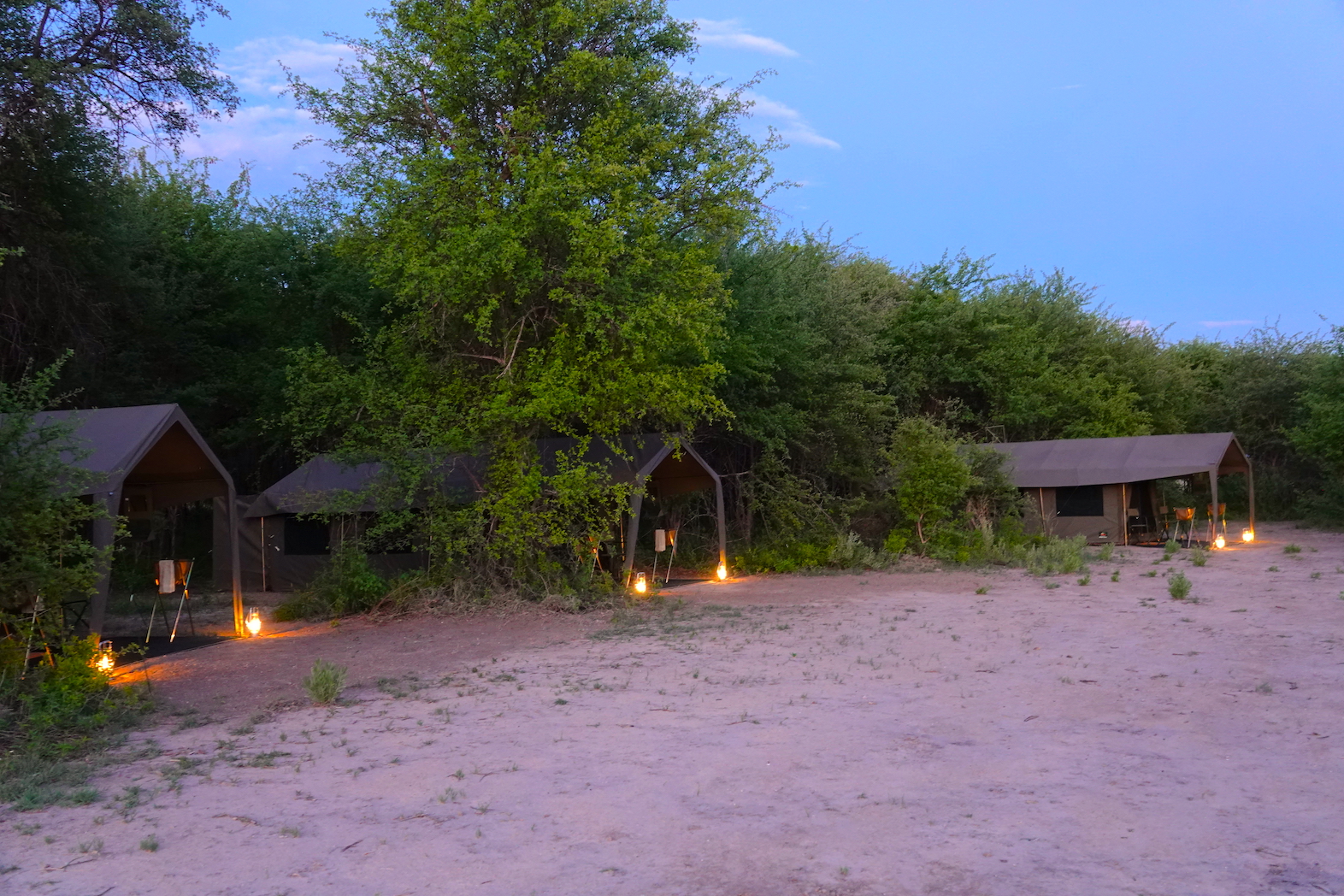
The next type of safari is a mobile camping safari. This is what we are at Brave Africa. Basically, you work with a safari company to go on a guided safari. The company provides the tents, vehicles, food, and professional guides to make your experience as incredible as possible.
The difference between a mobile camping safari and a lodge is that a mobile safari takes place in mobile tents that can move between locations. This means you can sign up for one safari package, and the company will move you between locations on your safari without you having to book different lodges in different locations and pay for travel between each site. Think of it like paying for a tour versus paying for separate hotels.
However, it is important to note that there are different levels of mobile camping safaris.
- Basic: The basic level includes very small camping tents without attached baths or toilets, and that you may need to set up and tear down yourself. You should also expect simple meals (sandwiches or basic fare cooked over a fire), and very few other accommodations. You mostly pay for the professional guide and the safari vehicle to take you around. This is a no-frills type of camping safari.
- Premier: A comfortable but modest mobile camping safari experience, which includes larger tents that are put up and taken down by the safari company. But the tents still tend to be basic along with the meals. You should expect drop toilets, potentially communal shower areas, cots instead of mattresses, and basic meals. This is a good option for people who are okay with roughing it.
- Luxury: At the highest level, you’ll find mobile camping safaris like Brave Africa. We are a full-service African wildlife safari offering outstanding amenities, ambiance, service, and experiences. We offer large 3-room tents, luxurious mattresses, flushing toilets, private showers, superb chef-cooked meals, a fully-stocked bar, and all the amenities. We take care of everything just like if you were staying at a lodge. You’ll have a professional guide, daily housekeeping, laundry services, chef-prepared meals, and so much more.
For a mobile camping safari, you typically book a longer multi-day trip with a company that will allow you to go on safari in a few different locations. For example, we offer both 6-night and 9-night mobile camping safaris where you spend 3 nights at each campsite before moving to another location. Think of it like booking a safari tour, and all you have to do is show up and we do the rest.
Here are some tips for planning your ultimate mobile camping safari experience.
Lodge Safaris
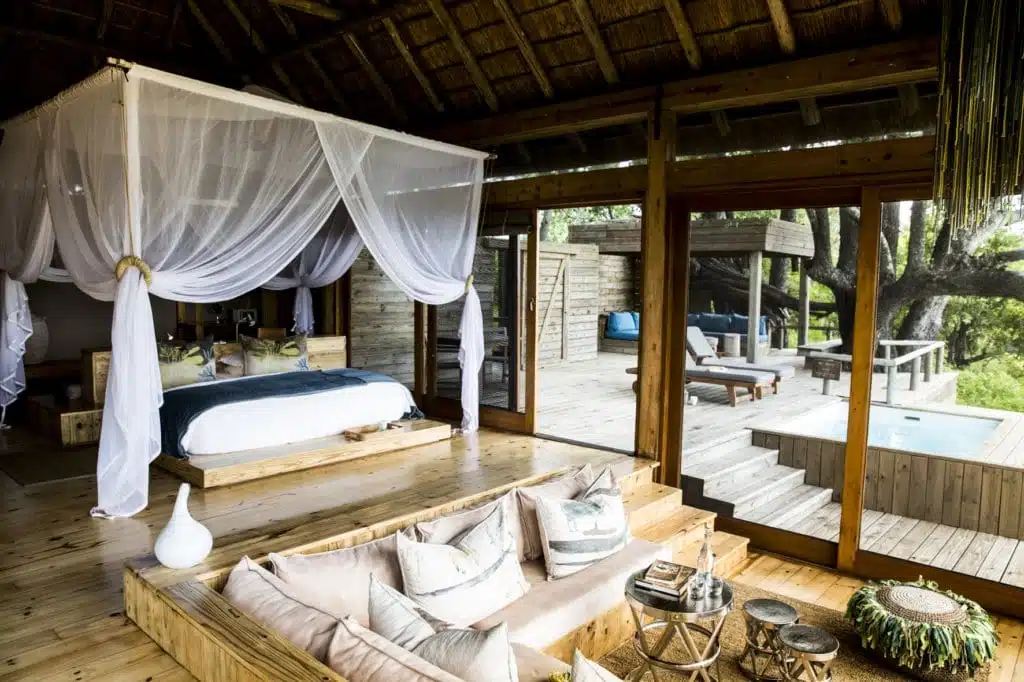
The final type of safari is the lodge safari. This experience is most similar to booking an all-inclusive hotel. You find a lodge in a location where you would like to stay, and you book your room in the lodge for however long you want to stay.
If you want to visit multiple locations in the African bush, you need to book a room at different lodges and figure out transportation between each location (bush flight, helicopter, road transfer). For most locations in southern and eastern Africa, moving between lodges means paying for a bush flight. This is because camp locations are normally an all-day drive away through the bush. So, you’ll normally hop on a bush flight and get picked up at your next lodge. This is the main difference between a luxury mobile camping safari and a lodge safari—as a camping safari includes transfers between camps.
But lodges provide the ULTIMATE luxury. Depending on how much money you are willing to spend, you can stay in the most elegant and opulent lodge imaginable, with private pools in each room, the highest-end liquors, and the full range of world-class comforts and delights. There are also lower-end lodges that use very similar tents to Brave Africa and have a very similar experience, but you will still pay more for the lodge because their expenses are slightly higher, and you’ll require more bush flights.
Plan Your African Wildlife Safari Today
An African wildlife safari is a once-in-a-lifetime experience that you do not want to miss. It is transformative and life-enriching. You will talk about it for years to come!
And, if you are like most guests, your first safari will not be your last. You’ll discover how incredible it is to sleep under the stars, hear a lion’s powerful roar, witness colorful birds in flight, and make memories that fill you with wonder and excitement. You will not only want to come back, but you will want to share the experience with everyone you meet.
So, if you are ready to take the plunge and plan your Botswana safari, reach out to Brave Africa today. You can email us at info@braveafrica.com or submit a contact form on our website.
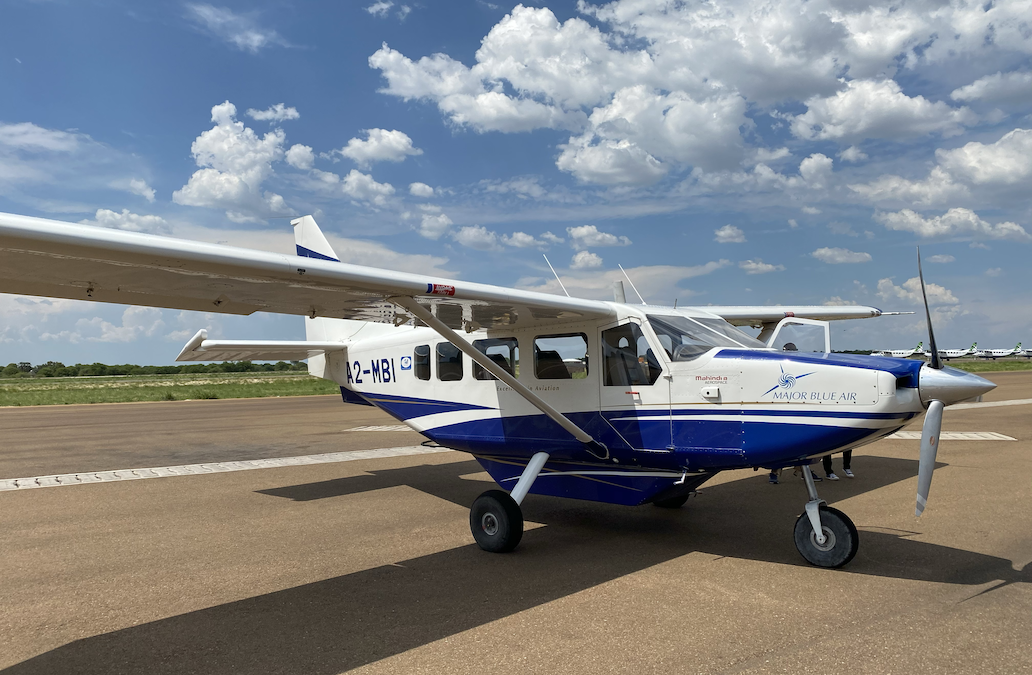
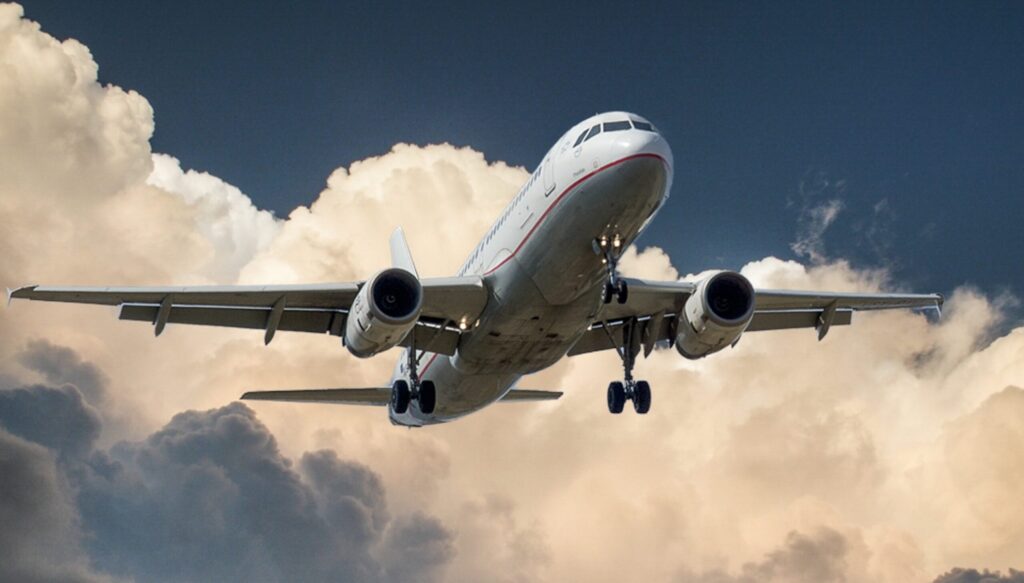
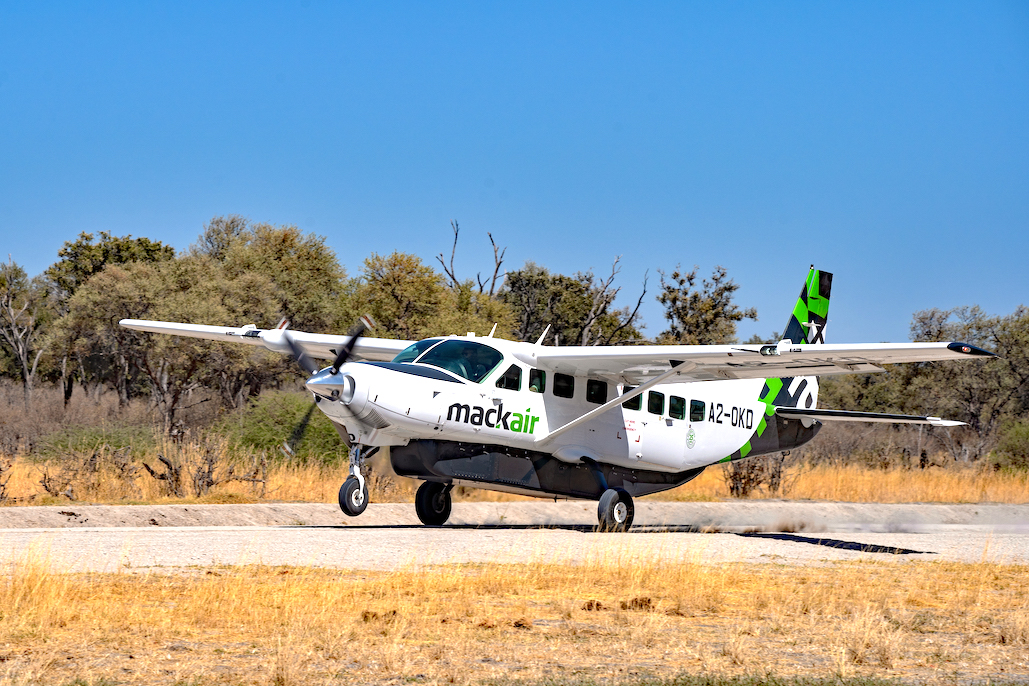


 Are you going to be eaten by a lion? Is an elephant going to run over your vehicle? Is a leopard going to run through camp and enter your tent? You are in the wild, so everything is possible. Right?
Are you going to be eaten by a lion? Is an elephant going to run over your vehicle? Is a leopard going to run through camp and enter your tent? You are in the wild, so everything is possible. Right? What about at camp? “I have seen your canvas tents. How is that safe? Animals could break into your tent or come through camp at any time!”
What about at camp? “I have seen your canvas tents. How is that safe? Animals could break into your tent or come through camp at any time!” 
 Lastly, you might be worried about being in the bush if something happens: you get sick, someone in your group gets injured, you have an allergic reaction, etc. If you need a doctor or a hospital, being away from civilization can seem terrifying. That’s why a key element of Botswana safari safety is our plan for first aid.
Lastly, you might be worried about being in the bush if something happens: you get sick, someone in your group gets injured, you have an allergic reaction, etc. If you need a doctor or a hospital, being away from civilization can seem terrifying. That’s why a key element of Botswana safari safety is our plan for first aid.